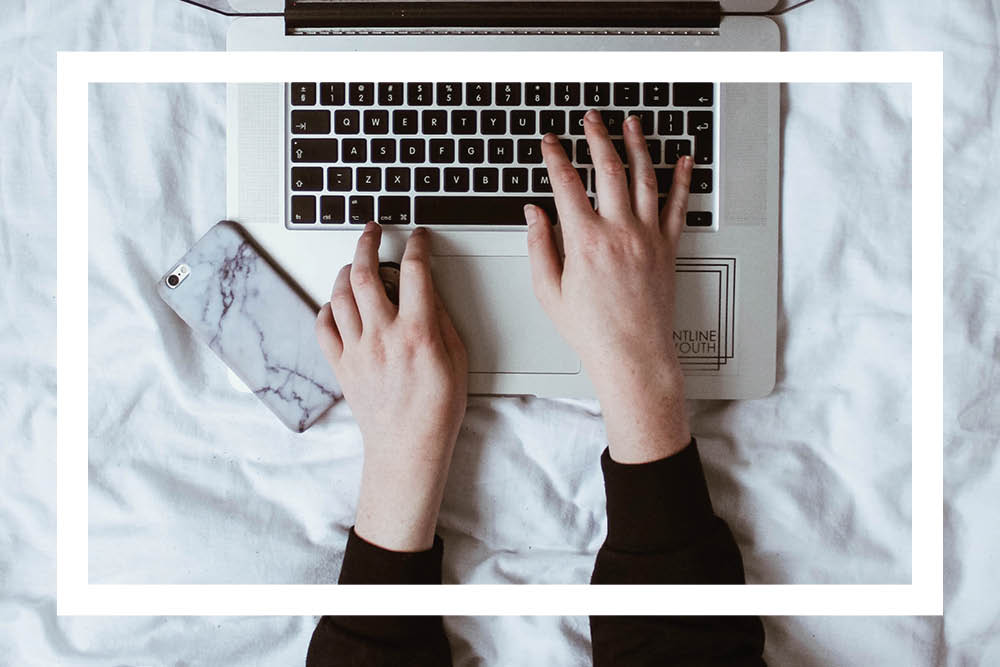4 Tips for the self-employed to help overcome fear

April is Stress Awareness month but right now the feeling of stress is hitting all of us so much harder with the pandemic of Covid-19. The impact of the crisis is being experienced by all businesses; both sole traders and global corporates. However, it is likely people who freelance or are self-employed may inadvertently find themselves with limited work, losing work or struggling to make ends meet during this challenging and unprecedented time. Understandably, this often leads to a sense of fear.
I am sorry to say I don’t have all the answers in this article and I wish I did. However, as someone who is self-employed, running a small business with contracted freelancers, I have been right in the heart of dealing with the same situation over the past two weeks.
I thought it would be helpful to create some tips around how to deal with the current situation now, the best way to support and protect both you and your business, how you can take action now for when things begin to return to a system of normality and how to cope with the current lack of work.
As a positive psychology practitioner with a research area interest of post-traumatic growth, I have read countless stories and case studies of individuals who have come through dark and challenging times. I have always found stories of resilience and adversity fascinating as to how the human spirit enables us to move through such tough experiences. I assure you, no matter how irrelevant you may think your own experience is compared to others, your difficulties are valid and it is important to acknowledge them for what they are.
Often when I coach people, they say “I shouldn’t really be anxious, worried, upset, fearful because there are people worse off in the world”. Yes, there absolutely are and always will be people worse off than you, yet you need to acknowledge your emotions, thoughts and feelings, because if you do not, they will end up either boiling over or be stored away for you to find later, which is often hugely unhelpful.
ACKNOWLEDGE THE FEAR
Therefore, my first tip for you is to find some time where you can sit for 10-15 minutes and think about all the feelings and emotions you are currently dealing with. Take in some deep breaths and begin to write or draw these emotions or thoughts down onto a piece of paper. It does not matter whether these are single words, phrases or free flow paragraphs. Whether you draw or create shapes – it is how you are feeling right now, and it is important for you to acknowledge this moment, and the sense of fear you are grappling with.
I have come up with this mnemonic of the word FEAR. Fear is the emotion we feel when experiencing the threat of danger, harm or pain. We haven’t yet experienced the danger but we feel the emotion that it could happen. This is why I want you to acknowledge your fears first because, once you have called them out, you can then begin to move forwards in a measured and responsive way to the current situation.
F – FOCUS ON YOUR FINANCES
One of the most important actions is to first understand your finances. What do you have in the bank? How many invoices are you owed? If they are existing clients, do they usually pay on time or do they pay late?
If you don’t already do this, now is the time to start chasing any outstanding invoices.
Look at your own outgoings: what payments could possibly be held back or could you agree payment extensions for?
As a freelance/self-employed person it is important you also check your personal finances and cut any expenses which are non-essential. If you have gym or studio memberships, check whether they are now frozen, so you are not paying out for memberships you are not able to use during this time.
All of the retail banks are clear the situation is affecting everyone. Call and speak to your business bank (and personal bank if different) to gain professional advice on how to manage your current financial situation.
Money is one thing we often can put our head in the sand about, so be upfront, remove the fear and focus on knowing where you are at right now. Review websites with expert professional advice such as the Money Saving Expert.
The Government is currently updating the support available to businesses; check it out to see what might apply to your individual situation. Also, if you have a good accountant, now is the time to find out what their professional insight can offer at this time.
E – EVERYONE IS IN THIS TOGETHER

Now could be an opportune time to collaborate with another freelancer who offers a complimentary skill or service.
Think outside of the box as to how this could work. It could also be a way whilst things are a little quieter, to be able to spend time and headspace on those passion projects.
Freelancers are often working in their business rather than on their business. You may have been craving time to write that book, publication, develop a product or rebrand. It could be ideal to trade-off on skills with friends or associates — you want some branding doing and they want an overhaul of their social media platforms. Be creative with the solutions.
A – ATTITUDE IS EVERYTHING
This goes without saying. It is going to be hard and it will be a rollercoaster. Please keep reaching out to people, especially if you are feeling extremely low or anxious. As I said at the start, our emotions are all valid, and what we experience. I also know that when loved ones and friends say to you “you’ll be alright, don’t worry” it is not particularly helpful at all!]
If you are feeling particularly anxious, No Panic is one of the UK’s anxiety charities and they have lots of resources to support you.
As a freelancer, it is highly important that you also have the right attitude to your own physical wellbeing as well as your mental fitness. Both are highly connected and now, more than ever, it is important that we keep ourselves healthy and well. Remember to be moving, even in social distancing: go for a walk or a run around the street. Keep hydrated by drinking lots of water. Ensure you are resting; this is a particularly hard one for me, but if I keep feeling anxious and continue working, I am not always doing my best work.
Create some short-term goals. What are the actions you can do now which will help you to survive? What options are within your control? If you are not registered already, have a look at some of the freelancer sites such peopleperhour.com for income options.
Whilst you have time, check to see if your social media is up to date. When was the last time you updated your LinkedIn profile or other relevant social media platforms?
R – RELEVANCE IS IMPORTANT

We have shifted and changed to meet our client’s needs who required different products to match what they were experiencing. It has taken time and patience; it is still a work in progress but I feel we are also doing more to support and help others.
Can you upskill to meet the demand or what you might see as the demand in the future? Have a look at online learning platforms such as Future Learn. Taking a course whilst it is a little quieter could be the advantage you need in a few months’ time. Hold a virtual creative day with friends, where you devise all the ways you could do your job in a different way; remember people who are not in your business might have ideas you cannot see for yourself. None of this may help your short-term cash flow and it might mean having to seek alternative ways to support your income, but this will add to your resilience and ability to see through the adversity you are experiencing.
Remember, when it comes to facing fear, you are stronger than you think you are.
Ruth Cooper-Dickson is a Positive Psychology Practitioner and qualified Coach, who has studied Applied Positive Psychology and Coaching Psychology. She is the Founder and MD of the global mental wealth people consultancy, CHAMPS, partnering with progressive organisations helping them to ingrain a culture of positive mental wealth. Ruth is a passionate runner, an addicted life-long learner and a lover of all things cake!















